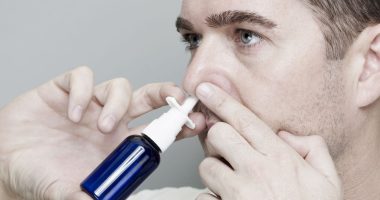Share this @internewscast.com
“In general [a BFRB] is a habit, like fingernail biting, hair pulling, or skin picking, but for it to be meet the criteria to be a disorder, it means that it has to cause some impairment and usually an impairment in functioning,” says Barbara O. Rothbaum, PhD, ABPP, a professor of psychiatry at Emory University School of Medicine and a board member of The TLC Foundation for Body Focused Repetitive Behaviors. That means that the behavior makes people self-conscious, injured, or anxious enough that it stops them from interacting with others, going to work, making social plans, or experiencing other important parts of life.
You don’t have to reach this level to notice that you’re doing this habit, and maybe want to cut down. “Probably everybody has bitten their lip out of a nervous habit at some point,” Dr. Rothbaum says. But why did you start lip biting in the first place?
Often, body-focused habits can start as a way to self-soothe or distract from anxiety. If it in some way feels good, even subconsciously, a person is more likely to repeat the action. That holds true for lip biting.
“If somebody’s biting their lip when they’re anxious and there is a little bit of pain, it might actually distract them from their anxiety and that might be reinforcing,” Dr. Rothbaum says. “Anytime somebody is stressed or anxious, you usually see any kind of repetitive behavior increase, even if it’s not a habit, you see people getting more fidgety and doing all sorts of things.”
Then, the more often you do an action, you have the potential to repeat that action, “and then boom, you’ve got a behavior,” says Dr. Rothbaum.
“If somebody’s biting their lip when they’re anxious and there is a little bit of pain, it might actually distract them from their anxiety and that might be reinforcing.” —Barbara O. Rothbaum, PhD, ABPP
Read Related Also: Breast cancer rates for younger women rising; Chicago area patients urged to act
As for why you might start lip biting over some other action, experts are still not sure, Dr. Rothbaum says. Some people might be more genetically predisposed to fidgeting, and/or to specific actions, but the science on that is not clear, yet.
How to stop lip biting
So, what can you do about it? The first step is noticing the behavior when it happens. That allows you to document occurrences, examine triggers, and prepare for moments when you might be likely to lip-bite. Dr. Rothbaum recommends actually writing down occurrences, which will allow you to track patterns and know when you need to be more mindful or vigilant.
“Part of the nature of a habit is that a lot of it occurs without our awareness and then all of a sudden we realize, oops, I’ve just been biting my lips,” Dr. Rothbaum says. “Look for patterns, look for any thoughts associated with it, feelings associated with it.”
Also helpful: Dr. Rothbaum suggests doing something that physically prevents you from doing the action, like chewing gum. You can pop a piece whenever you notice the biting start, or start chewing preemptively when you’re in a stressful situation.
The good news is that you can probably tame this habit on your own, Dr. Rothbaum says. However, if you feel your lip biting is crossing over from a habit to a BFRB, you may want to seek help from a mental health professional, and check out the resources available from places like The TLC Foundation for BFRBs.
“A lot of times once it starts, then it takes on a life of its own and then that’s when it can become hard and people need treatment or need help to try to turn that around,” Dr. Rothbaum says.













